Families For Life | Mini Marriage PREP Tips: Events, Issues and Core Needs
Events and Issues: Overview
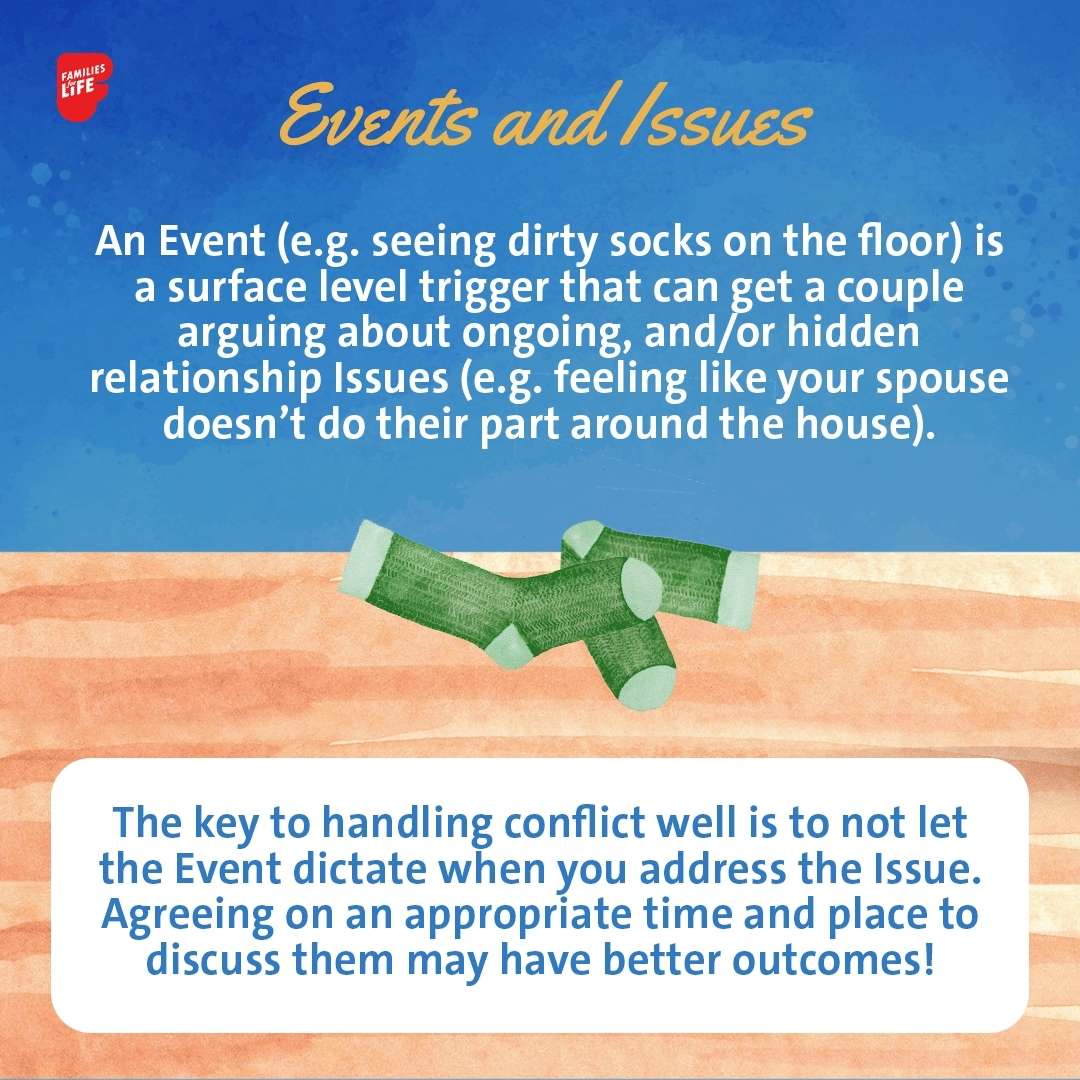
An Event is a surface level trigger that can get a couple arguing about an ongoing relationship issue and /or a deeper or hidden issue in their relationship.
The first key to handling conflict well is not to let the Event dictate when we address the Issue. For example, even if we are upset that our spouse checked their phone over dinner at the restaurant (Event), we should consider that it is probably not the time or place to get into an emotional, lengthy discussion about social media use (ongoing relationship Issue).
If we choose to discuss Issues whenever an Event occurs, we are giving them too much power in our relationship. Issues do need to be addressed, but agreeing on an appropriate time and place to discuss them will yield better outcomes than hastily handling them in the heat of the moment.
Core Needs: Overview
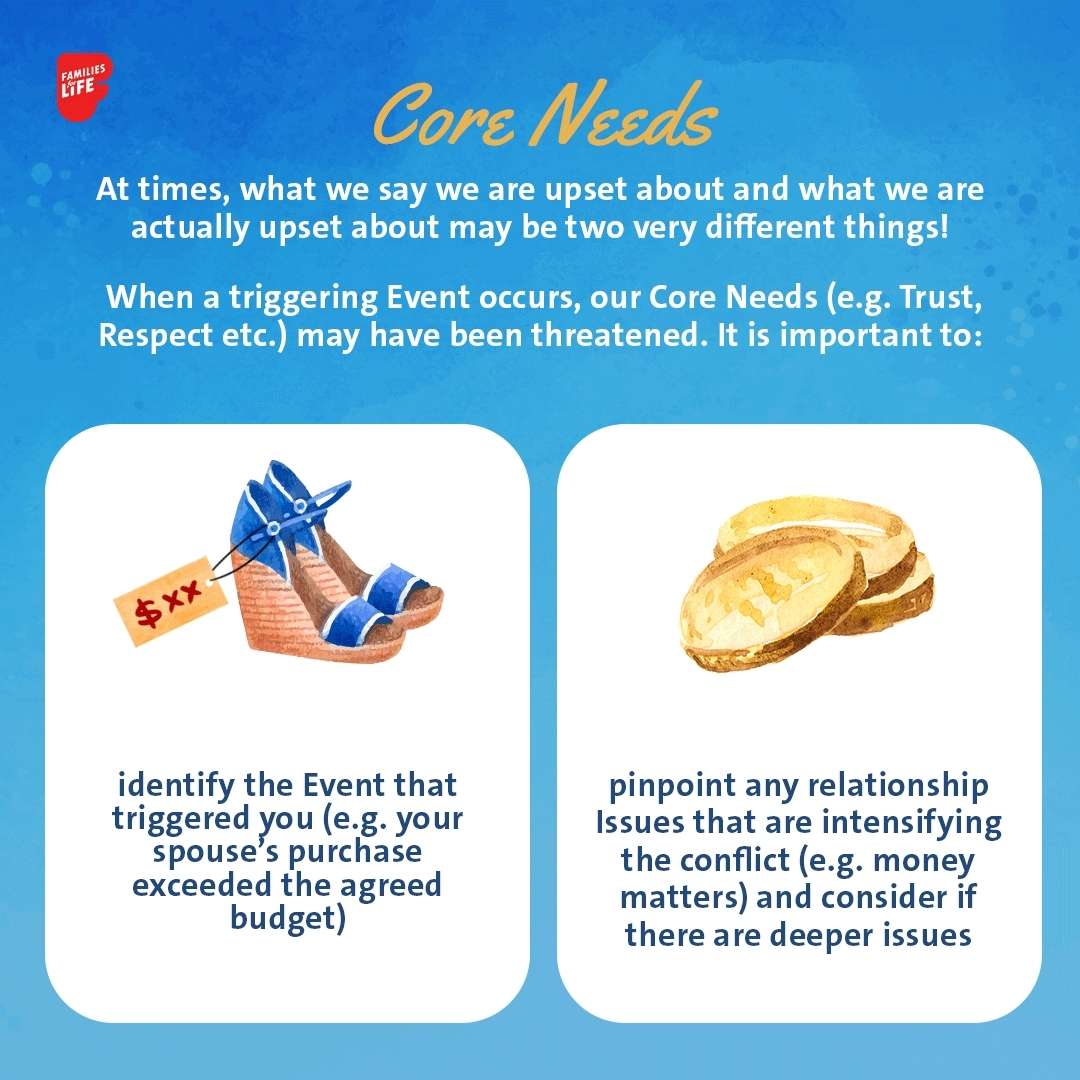
At times, what we say we’re upset about and what we’re actually upset about may be two very different things! Once we have identified the Event that triggered us and are able to pinpoint any relationship Issues that are intensifying the conflict, we need to consider the Core Needs deep down that influence our reaction to the Event too. For example, you and your spouse have set out a budget to get aligned on financial matters. However, your spouse made a purchase that you felt had violated that budget. Upon pointing that out, it led to a huge argument between the both of you.
In this example, the Event refers to your spouse’s purchase, and a more general relationship Issue surrounding money is involved. Beyond this, you may discover certain Core Needs being threatened. Perhaps your spouse’s unexpected purchase brought up deeper issues related to control or respect for you. When we realise that we have become more emotional or upset than what the Event calls for, that’s a strong sign that there are Core Needs below the surface that need to be addressed.
Common Core Needs
Once we discover some of the Core Needs that fuel our arguments and unmet expectations, we need to share those things with our spouse. While we can’t expect that this will make the Issues disappear for us, being able to share them candidly, and safely, goes a long way.
We all have a few Core Needs that propel us through the day, and it’s important for our spouse to understand the process and reasoning behind the way we do things. Having greater understanding, grace, and support are essential ingredients for working through relationship issues as a team.
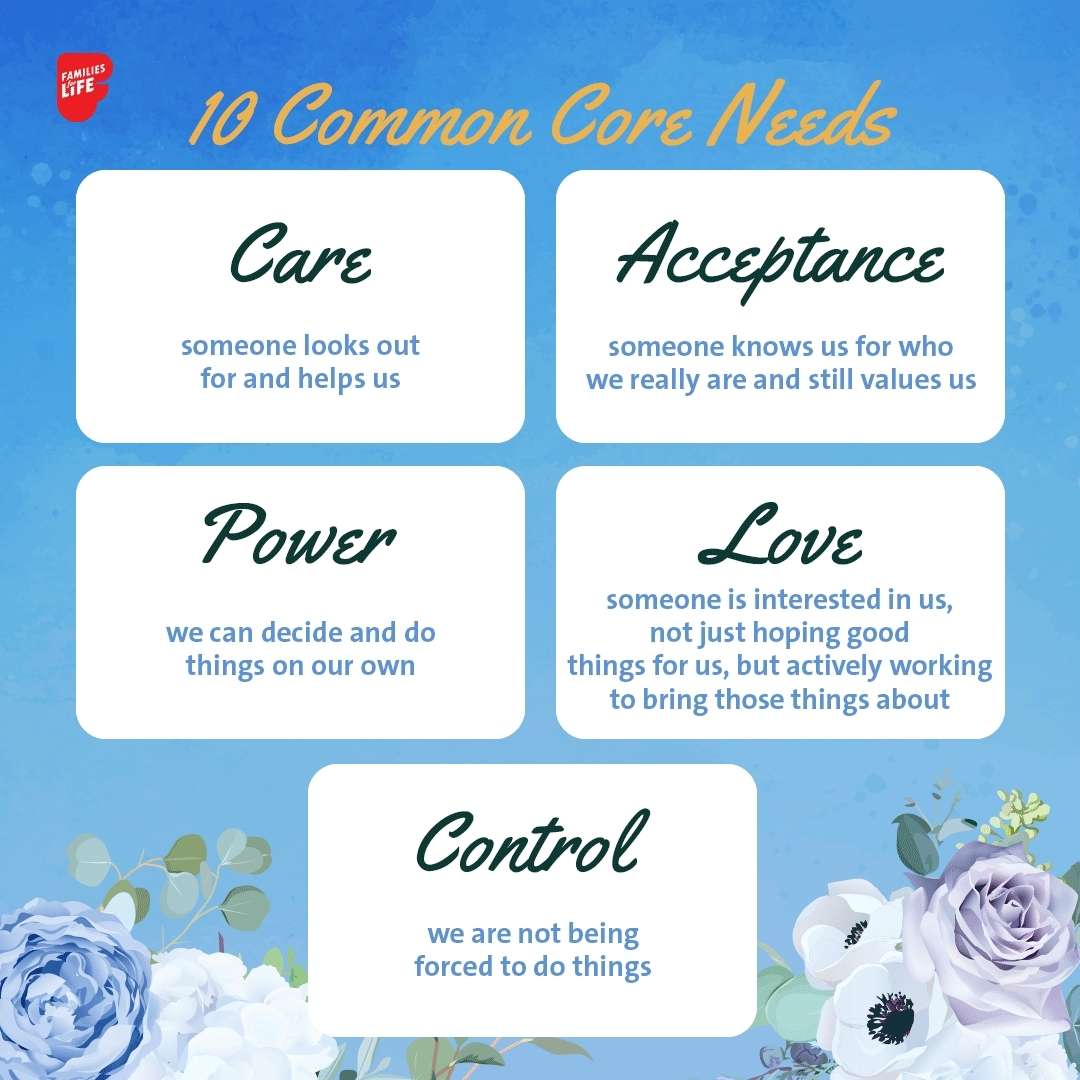
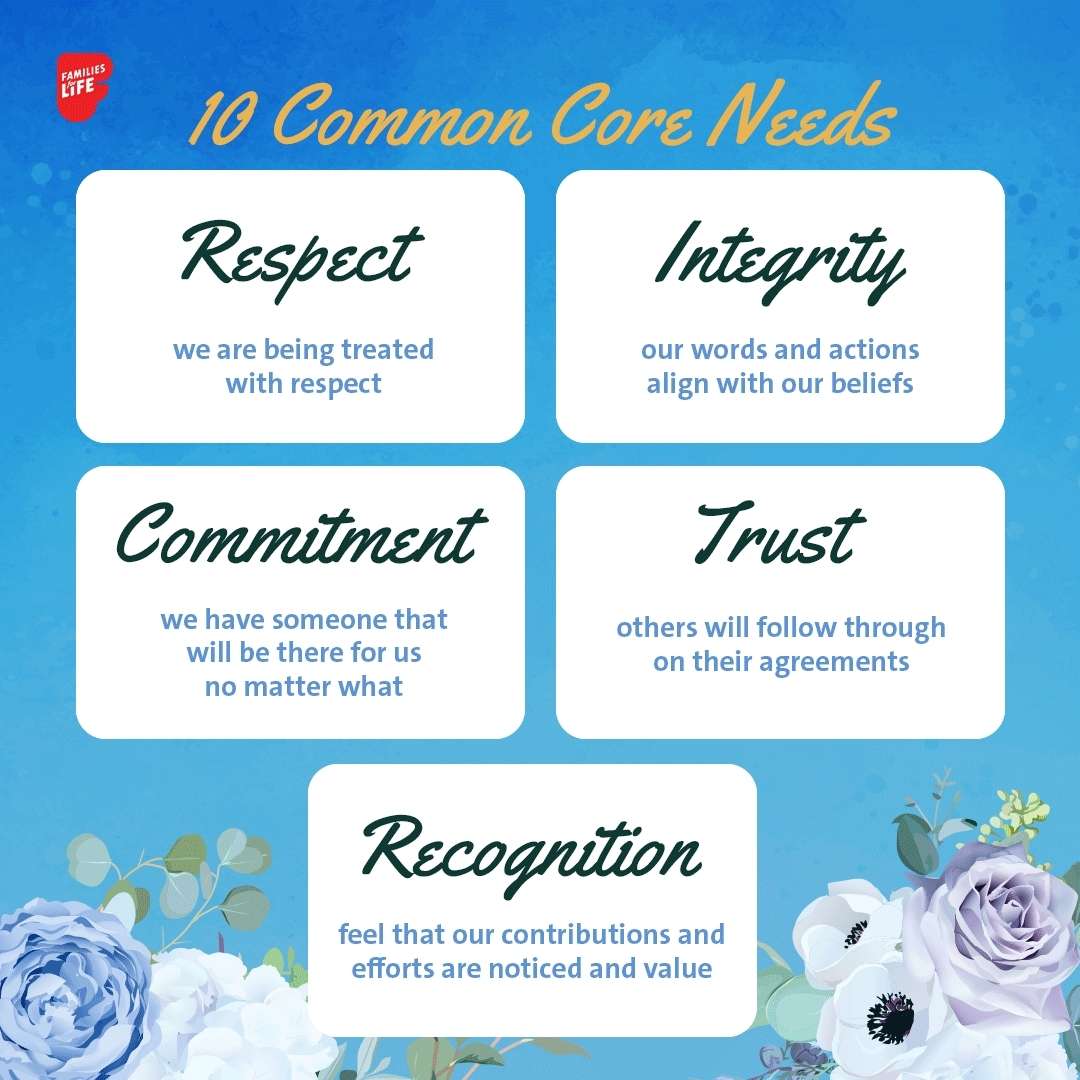
PREP’s research has identified 10 common Core Needs that operate at a deep level for many of us:
Caring – we need to feel someone is interested in, looks out for, and helps us
Acceptance – we need to feel someone knows us for who we really are, the good and the bad, and still values us
Control – we need to feel we are not being forced to do things
Power – we need to feel we have the ability to decide and do things on our own
Love – we need to feel someone is interested in us, not just hoping good things for us, but actively working to bring those things about
Integrity – we need to feel our words and actions align with our morals and beliefs
Respect – we need to feel we are being treated with dignity
Commitment – we need to feel we have someone to rely on to be there for us no matter what
Trust – we need to feel others will follow through on their agreements
Recognition – we need to feel our contributions and efforts are noticed and valued
Signs of Core Needs
“I’m just upset that you invited your mother over without asking me! It’s that simple!”
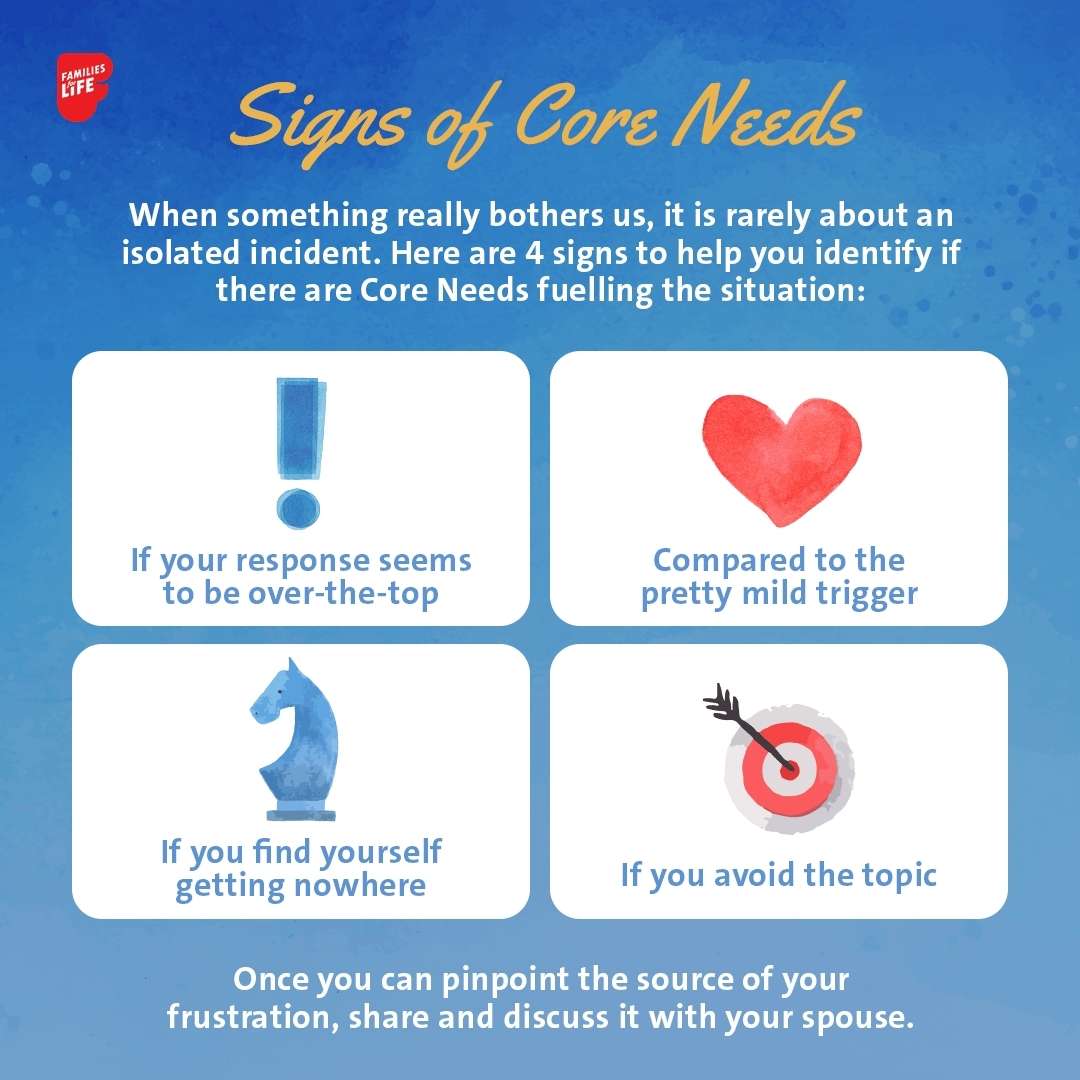
Well, when something really gets under our skin, it’s rarely about an isolated incident. Perhaps this isn’t the first time your spouse has invited someone over without seeking your consent, or you have a strained relationship with your mother-in-law that has made this feel especially insensitive. Here are four telltale signs to help you identify if there are Core Needs fueling the situation:
If your response seems to be over-the-top compared to the pretty mild trigger
If you find yourself spinning your wheels and getting nowhere, you probably aren’t addressing the real issue at all
If you avoid the topic
If you keep score of rights/wrongs
If you feel yourself sliding into one of these behaviors, pay attention to the Core Need that you think might have been violated. Once you can pinpoint the source of your frustration, you can discuss it with your spouse and make progress towards decreasing destructive conflict and increasing intimacy.
Example: Identifying an Event, Issue and Core Need (Intimacy)
Some spouses crave physical touch and closeness. It makes them feel loved and cared for. Others shy away from physical intimacy and prefer a kind word or thoughtful gesture. When a couple’s desire for physical intimacy is mismatched, it can cause friction.
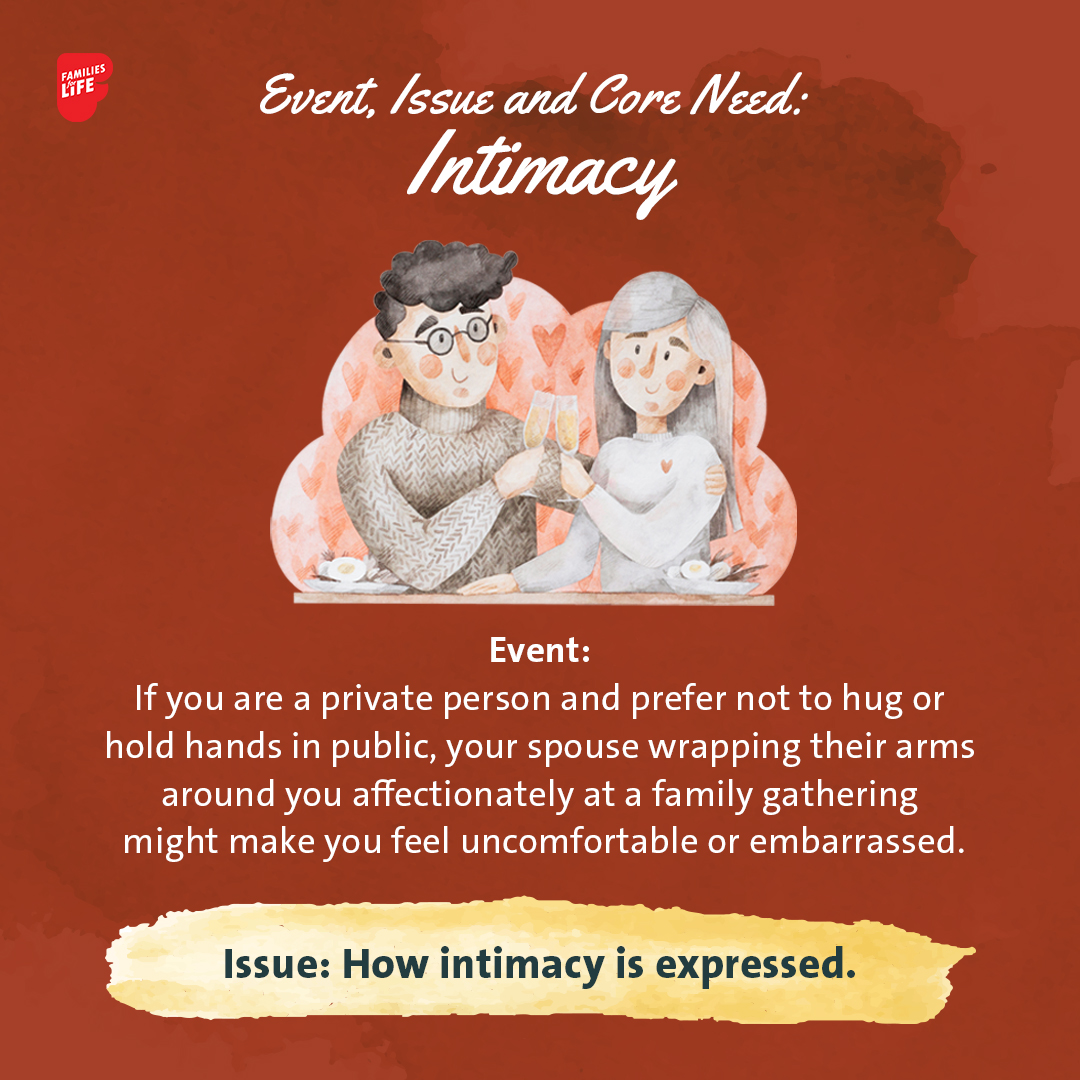
If you are a private person and prefer not to hug or hold hands in public, your spouse wrapping their arms around you affectionately at a family gathering might make you feel uncomfortable or embarrassed. The public embrace is a triggering Event that relates to some recurring Issues in your relationship around intimacy. When you search for the root cause of your discomfort, the public embrace may violate your Core Need for respect.
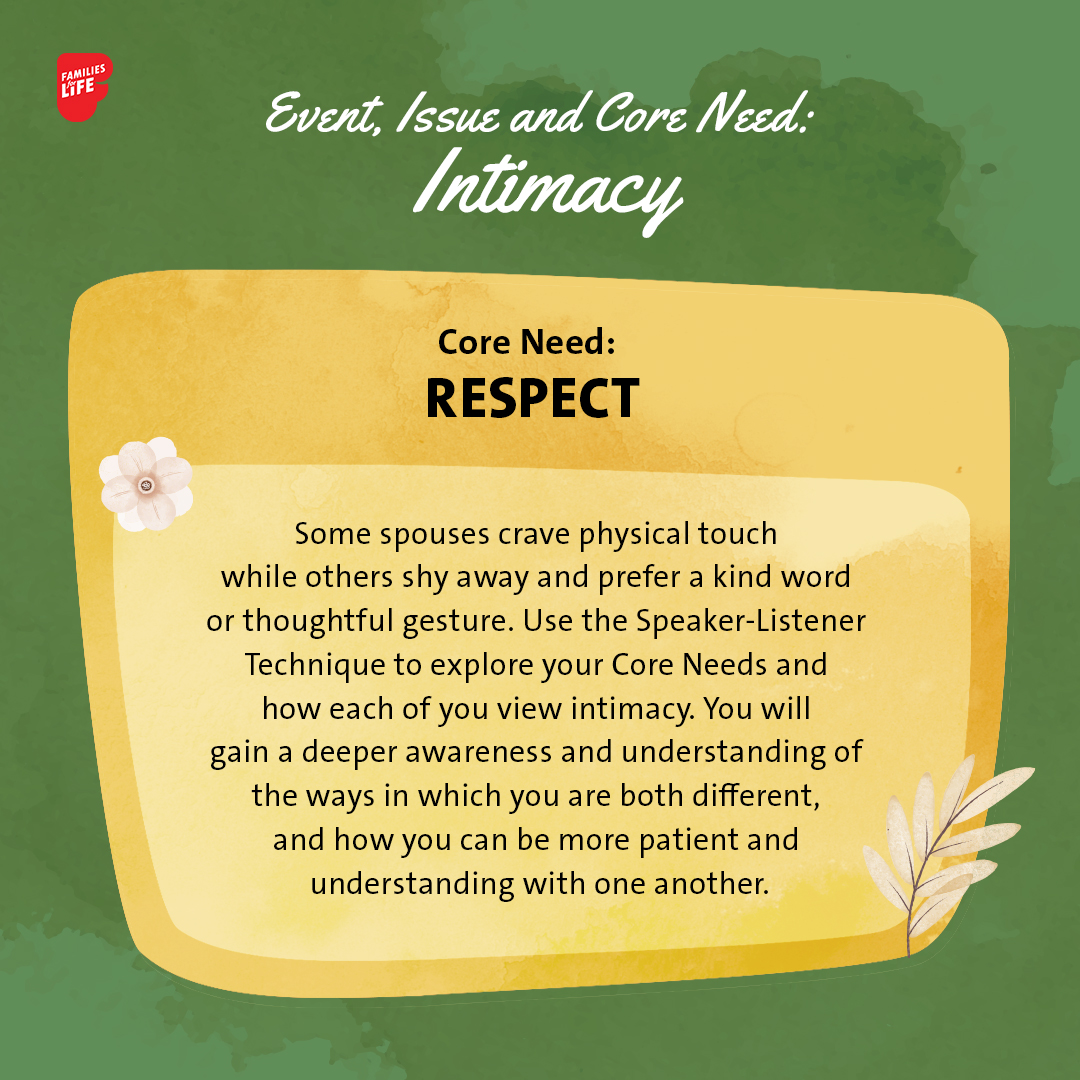
In a calmer moment, you can use the Speaker-Listener Technique to explore how you each feel. If your spouse feels rejected when you refuse a hug, they may have a Core Need for love that feels violated, too. If you can look past this particular Event and discuss the deeper needs surrounding it, you’ll gain deeper awareness and understanding of your spouse’s personality, the ways you’re both different, and how you can be more patient and understanding with one another.
Example: Identifying an Event, Issue and Core Need (Housework)
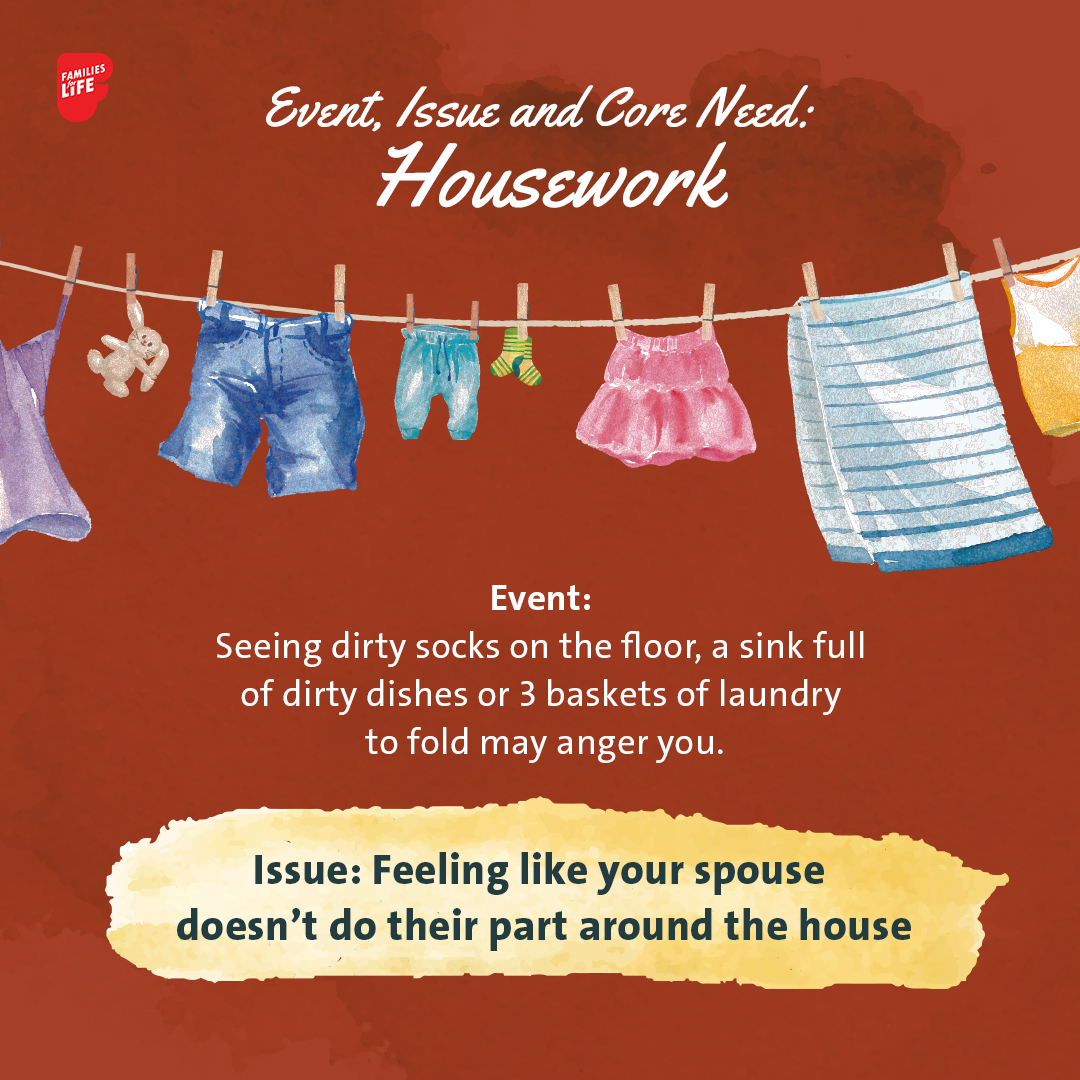
Couples are often wired very differently when it comes to cleanliness and order in the home. While some may go into a full-on panic stumbling across dirty socks on the floor, others may be pretty unfazed by it all. If you’re easily triggered by a sink full of dirty dishes or 3 baskets of laundry to fold, you may experience feelings of resentment. If you feel like your spouse doesn’t do their part around the house, a division of labour Issue is probably simmering just beneath the surface.
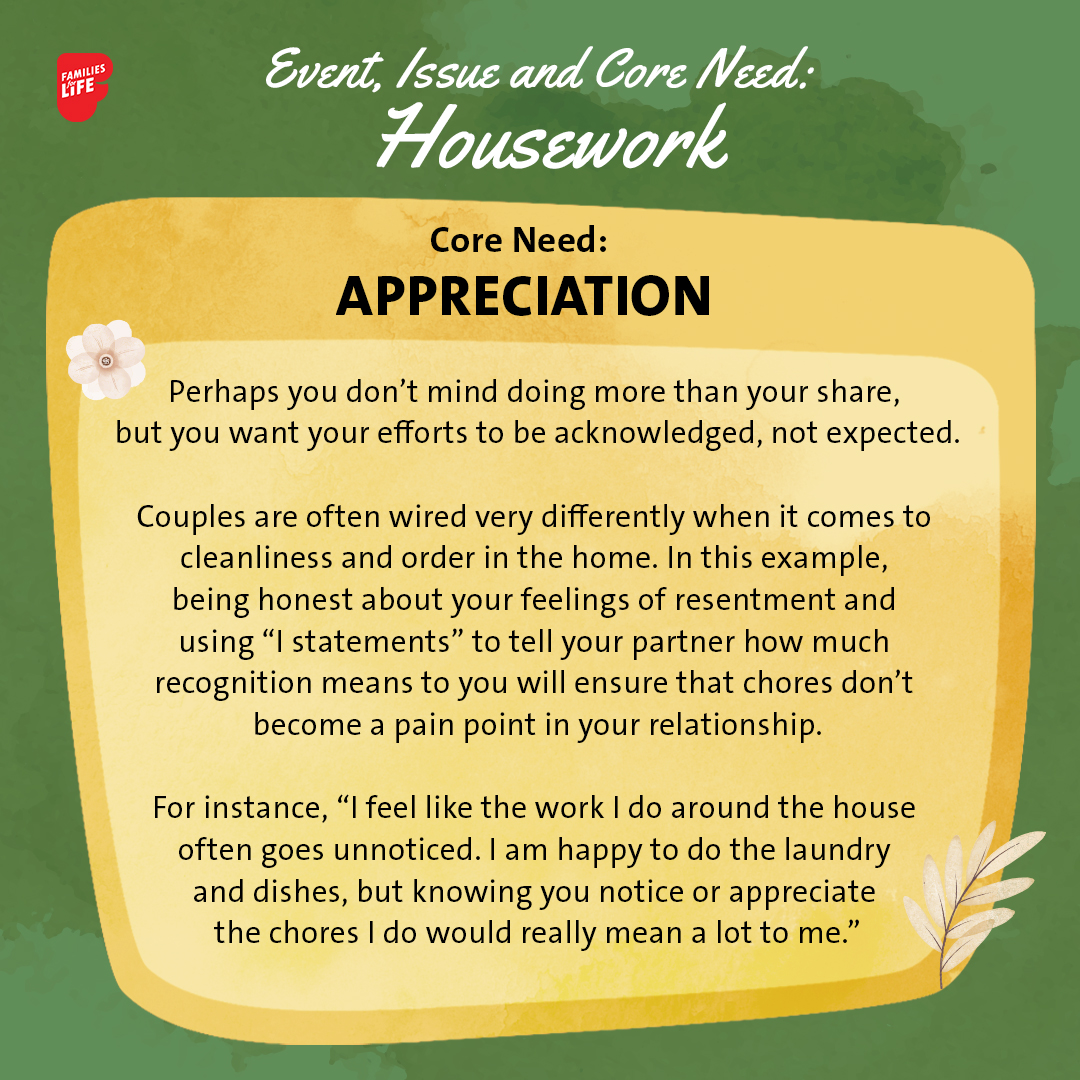
Being honest about your feelings of resentment, you may recognize you have a Core Need for appreciation. Perhaps you don’t mind doing more than your share, but you want your efforts to be acknowledged, not expected. Once you pinpoint the deeper emotional need, you can use “I statements” to tell your partner how much recognition means to you so chores don’t become a pain point in your relationship.
For instance, “I feel like the work I do around the house often goes unnoticed. I am happy to do the laundry and dishes, but knowing you notice or appreciate the chores I do would really mean a lot to me.”
If you like what you read, check out other mini marriage PREP tips here!